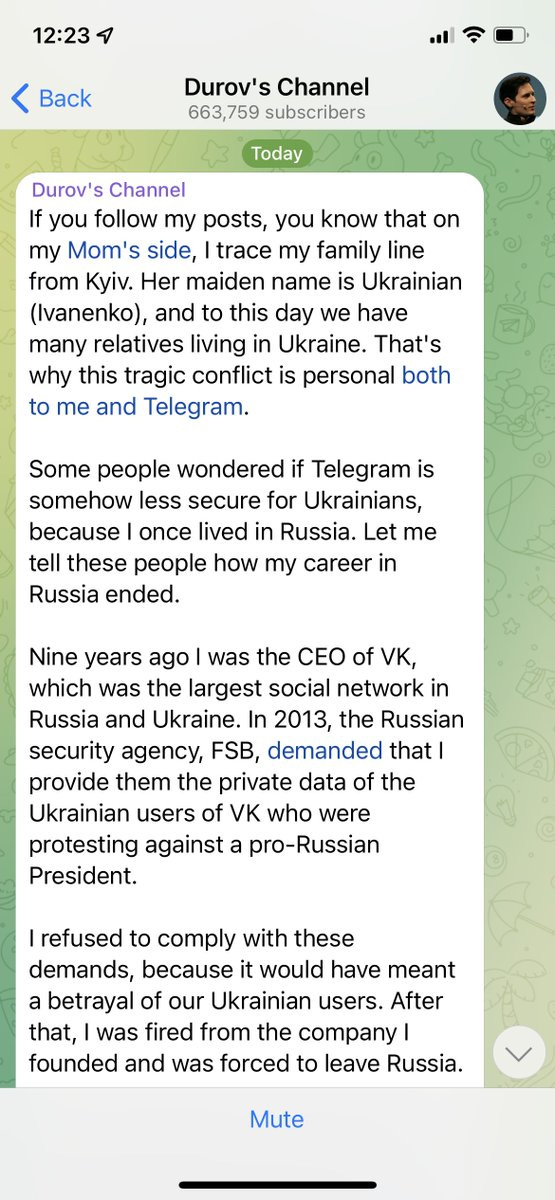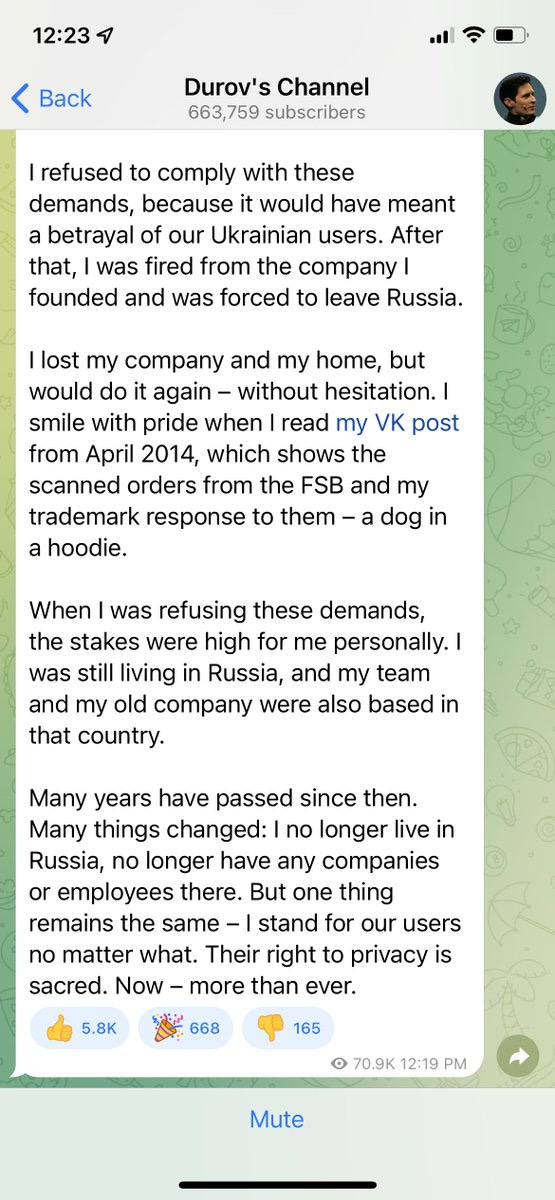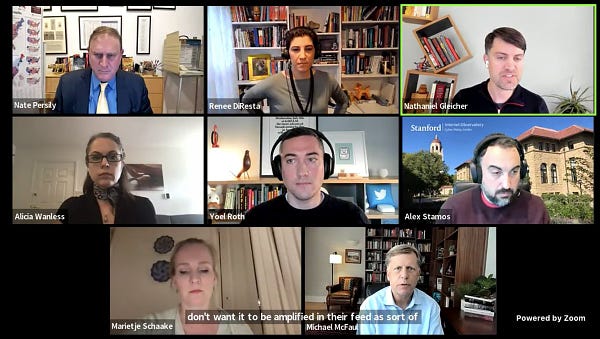Arming Ukraine: 17,000 anti-tank weapons in 6 days and a clandestine Cybercorps | Chinese brands stay put in Russia for now despite Western exodus | Biden appointees split on key cyber bill
Follow us on Twitter. The Daily Cyber Digest focuses on the topics we work on, including cyber, critical technologies & strategic issues like foreign interference.
Hidden away on bases around Eastern Europe, forces from United States Cyber Command known as “cybermission teams” are in place to interfere with Russia’s digital attacks and communications — but measuring their success rate is difficult, officials say. The New York Times
Chinese firms are staying put in Russia for the moment despite a growing exodus of Western companies — albeit bracing for growing uncertainty — taking a cue from Beijing’s stance of refraining from criticizing Moscow over its invasion of Ukraine. The Japan Times
President Joe Biden’s top national security officials are publicly split over legislation that would require critical infrastructure companies to report hacks to the government, in a remarkable display of disharmony over a bill with bipartisan support and industry backing. POLITICO
Ukraine-Russia

Arming Ukraine: 17,000 Anti-Tank Weapons in 6 Days and a Clandestine Cybercorps
The New York Times
David E. Sanger, Eric Schmitt, Helene Cooper, Julian E. Barnes and Kenneth P. Vogel
In Washington and Germany, intelligence officials race to merge satellite photographs with electronic intercepts of Russian military units, strip them of hints of how they were gathered, and beam them to Ukrainian military units within an hour or two. As he tries to stay out of the hands of Russian forces in Kyiv, President Volodymyr Zelensky of Ukraine travels with encrypted communications equipment, provided by the Americans, that can put him into a secure call with President Biden. Mr. Zelensky used it Saturday night for a 35-minute call with his American counterpart on what more the U.S. can do in its effort to keep Ukraine alive without entering into direct combat on the ground, in the air or in cyberspace with Russian forces.


The Biggest Cyber Risk in Ukraine?
Foreign Affairs
Jacquelyn Schneider
Just as many military experts predicted that a Russian invasion of Ukraine would be quick and decisive, so many cyber-experts expected that Moscow would fortify its conventional onslaught with a devastating cyberattack. Ukrainian forces would be blinded, critical infrastructure broken, and Russian disinformation rampant. But just as the military experts have been surprised by Russia’s stalled invasion, so have the cyber-experts by the lack of major digital attacks. In the first few days of conflict, cyber-operations seem to be more fizzle than bang.
‘Defend the Country, Defend the Truth’: How 16 Ukrainian- and Russian-Born Tech Workers Are Responding to a Nightmare
The Information
Russia’s assault on Ukraine has taken an incalculable toll on the families of expat tech workers. Here, 16 stories of anguish, horror and hope, told in their own words.
Amateur open-source researchers went viral unpacking the war in Ukraine
Rest of World
Leo Schwartz
From college sophomores to 9-to-5 IT workers, hobbyist OSINT accounts are reconstructing events on the ground.
Twitter is part of our war effort - Ukraine minister
BBC
Joe Tidy
As Ukraine's military and citizens battle Russia's advancing troops, the country has opened a new front in the fighting - using tech expertise to rally Silicon Valley's support and undermine the enemy. Digital minister Mykhailo Fedorov is leading the charge, but some of his tactics are proving divisive.
Ukraine Demanded Cloudflare Stop Protecting Russians From Cyberattacks. Cloudflare Said No
Forbes
Thomas Brewster
The $30 billion tech company Cloudflare has decided to continue providing services to Russia, in the face of calls from Ukraine to cease following the invasion.
Russia, Blocked From the Global Internet, Plunges Into Digital Isolation
The New York Times
Adam Satariano and Valerie Hopkins
Russian authorities and multinational companies have erected a digital barricade between the country and the West, erasing the last remnants of independent information online.



Russian telcos left with Huawei as Ericsson and Nokia down tools
Light Reading
Iain Morris
Russian telecom may have to be made in China from now on. Both Ericsson and Nokia today confirmed they would cease product deliveries to Russian customers while they assess the impact of Western government sanctions, imposed after the invasion of neighboring Ukraine ordered last week by Russian dictator Vladimir Putin. For reputational reasons alone, it is hard to see how the Nordic vendors can possibly resume work unless that conflict draws to a close. Escalation seems likelier. And that leaves Russian operators with only Huawei as an alternative.
Russia mulls legalizing software piracy as it’s cut off from Western tech
Ars Technica
Tim De Chant
Proliferation of software-as-a-service may make it harder to pull off, though.
Cyber lessons in the wake of Russia’s invasion of Ukraine
The Strategist
Lesley Seebeck
The way cyber actions have played out in the Russian invasion of Ukraine hasn’t followed the anticipated script. The attacks on Ukrainian government agencies and banks in early and mid-February were not unexpected, given Russian rhetoric. But the ‘cyber Pearl Harbor’ that some had anticipated hasn’t occurred.
Opinion: Why the West should help Russians learn the truth about Putin’s war in Ukraine
The Washington Post
Vladimir Kara-Murza
As the world’s democracies rightly prioritize helping Ukraine withstand Putin’s aggression, they should not overlook the other important task: helping Russian citizens gain access to objective information about the war and the Putin regime in general.
China
Chinese brands stay put in Russia for now despite Western exodus
The Japan Times
Josh Horwitz and Brenda Goh
Chinese firms are staying put in Russia for the moment despite a growing exodus of Western companies — albeit bracing for growing uncertainty — taking a cue from Beijing’s stance of refraining from criticizing Moscow over its invasion of Ukraine…Chinese ride-hailing giant Didi Chuxing faced a public backlash in China last week after it announced it would pull out of Russia, with social media users accusing it of succumbing to U.S. pressure on Moscow. It later reversed the decision without giving an explanation. Lenovo, the world’s No. 1 personal computer maker, was also subject to heavy criticism in China when a local Belarusian news outlet reported, without saying where it got the information, that it would cease supplying Russia. Lenovo did not respond to Reuters’ requests for comment on the issue.
Chinese Tech Firms Weigh Opportunities in Russia After Western Pullout
The Wall Street Journal
Dan StrumpfSeizing market share from Apple, HP and others ceasing sales amid Ukraine war might not be so easy given mounting obstacles.
Minitrue: Turn Down Temperature, Strictly Control Content on Ukraine Situation
China Digital Times
Samuel Wade
The following censorship instructions, issued to the media by government authorities, have been leaked and distributed online.
On Chinese Social Media, Justin Sun Says He Hopes to 'Strengthen Cooperation' With Russia
CoinDesk
Sandali Handagama
The Tron founder has been a prominent supporter of crypto fundraisers for Ukraine during Russia's invasion. But a comment posted only across his Chinese social media sent a more complicated message.
USA
Biden appointees split on key cyber bill
POLITICO
Eric Geller
President Joe Biden’s top national security officials are publicly split over legislation that would require critical infrastructure companies to report hacks to the government, in a remarkable display of disharmony over a bill with bipartisan support and industry backing.
Rocked by ransomware attacks, Virginia makes cybersecurity a priority in budget
Richmond Times-Dispatch
Michael Martz
They are looking to make big investments in cybersecurity in the face of threats that were mounting before Russia invaded Ukraine, with cyber-attack a weapon that U.S. lawmakers fear will hit close to home.
Activists pushed the IRS to drop facial recognition. They won, but they're not done yet
CNN
Rachel Metz
Facial recognition has emerged as a hot-button issue where activists who oppose it see a chance to win. Even as the technology has proliferated and been embraced by law enforcement, lawmakers on both sides of the political aisle have expressed serious concerns about its deployment. And while most legislation regarding its usage has been passed at a more local level, this recent decision by a federal agency could mean more widespread limitations are achievable — or so the activists hope.
North Asia
From Samsung to Sony, Asia tech grapples with Russia sanctions
Nikkei Asia
Cheng Ting-Fang and Lauly Li
Asia's tech industry is scrambling to figure out how to comply with U.S. sanctions on Russia as they potentially apply to shipments of everything from telecom equipment and smartphones to PCs and gaming consoles..The suddenness and sweeping scope of the rules caught many Asian tech companies off guard. This has been especially true for those not caught up in the U.S. crackdown on Huawei Technologies. "We quickly set up a team of eight people to study the economic sanctions and U.S. export laws," James Hwang, chairman of Taiwan's Getac Holdings, told Nikkei Asia. "They are so difficult, complicated and vague. I even had to look up the term 'dual-use,' and we still aren't very sure if our products fall into the scope of the controls."
Southeast Asia
Southeast Asia Shows the High Cost of Fast Growth
Bloomberg
With China’s technology giants facing a plethora of struggles, Southeast Asia was supposed to be the hip new market that offered a well of fast-growth companies. That’s coming at a heavy cost.
Americas
In 2022, Cyber Ops Have Gone Mainstream
CIGI Online
Stephanie Carvin
The success of the so-called “freedom convoy” caught Canada, and much of the world, by surprise. Yet, the tactic of simply parking vehicles to protest is not new: similar events have occurred in Europe and South America in recent years. Instead, what made this protest and occupation unique in the Canadian context is the impact generated by hundreds of thousands of online users who sought to participate, facilitate or disrupt the movement. Trucks may have been the tool, but low-level cyber actions (broadly understood) have been the lifeblood of the convoy movement.
Gender and Women in Cyber
Women Making History in Cybersecurity: Parisa Tabriz
Girls who Code
Our first collaborative initiative is a series of features of women who work in the cybersecurity field, including the exciting work CISA employees are doing. Today we’re spotlighting Parisa Tabriz, a computer security expert and Google’s “Security Princess,” who manages all of Chrome Browser and Project Zero, a security research team.
Big Tech
Why Social Media Needs Mandatory Interoperability
Tech Policy
On January 24th, 2013, Mark Zuckerberg sent an email to approve preventing Vine from letting users invite their Facebook friends to the platform. At one time, Vine was an extremely popular video sharing app, and it spawned a community whose cultural impact remains with us to this day. When Facebook blocked Vine from connecting to its social network, it slowed the app’s growth and put it at a competitive disadvantage to another service owned by Facebook, Instagram. This episode illustrates the need for mandatory interoperability.
Misc
Carmakers Race to Control Next-Generation Battery Technology
The New York Times
Jack Ewing and Eric Lipton
Already far behind Asian manufacturers in building electric car batteries, U.S. automakers and their suppliers are racing to develop a new generation of batteries that are cheaper, can pack in more energy and charge faster. It is a global contest with huge economic consequences for automakers, small battery start-ups and car buyers, who in a few years will choose from a dizzying array of electric cars that use different kinds of batteries as the combustion engine era recedes.
Needy, overconfident voice assistants are wearing on their owners’ last nerves
The Washington Post
Nobody needed another difficult family member. Alexa and Siri showed up anyway.
My Wife Tracked Me, for Journalism
The New York Times
Trevor Timm
For a recent Times article, the reporter Kashmir Hill followed her husband’s every move using location trackers. She knew where he was at all times — what she didn’t learn, though, was what he was doing. Read about his experience, with some notes from Kashmir.
Events and Podcasts
A Discussion Regarding International Conflict and Cybersecurity with Tarah Wheeler
Harvard Professor and Fellow Series
Join us online March 16, 2022 from 8:00PM - 9:00PM EST as we discuss “International Conflict and Cybersecurity” with Tarah Wheeler, Non-Resident Fellow of the Cyber Project at the Belfer Center for Science and International Affairs at Harvard Kennedy School, and International Security Fellow at New America.


Research
New blocks emerge in Russia amid war in Ukraine: An OONI network measurement analysis
OONI
Maria Xynou and Arturo Filastò
Information controls are known to occur during conflicts, and that’s exactly what we’re seeing in Russia following the recent invasion of Ukraine on 24th February 2022.
Jobs
The Sydney Dialogue - Director
ASPI ICPC
The Australian Strategic Policy Institute (ASPI) is currently recruiting for a Director to lead the second iteration of ASPI’s Sydney Dialogue - the world’s premier summit on emerging, critical and cyber technologies.
The Sydney Dialogue - Senior Events Coordinator
ASPI ICPC
The Australian Strategic Policy Institute (ASPI) is currently recruiting for an experienced events professional to coordinate the planning and logistics of the second iteration of ASPI’s Sydney Dialogue - the world’s premier summit on emerging, critical and cyber technologies.
ICPC Senior Analyst or Analyst - China
ASPI ICPC
ASPI’s International Cyber Policy Centre (ICPC) has a unique opportunity for exceptional and experienced China-focused senior analysts or analysts to join its centre. This role will focus on original research and analysis centred around the (growing) range of topics which our ICPC China team work on. Our China team produces some of the most impactful and well-read policy-relevant research in the world, with our experts often being called upon by politicians, governments, corporates and civil society actors to provide briefings and advice.





